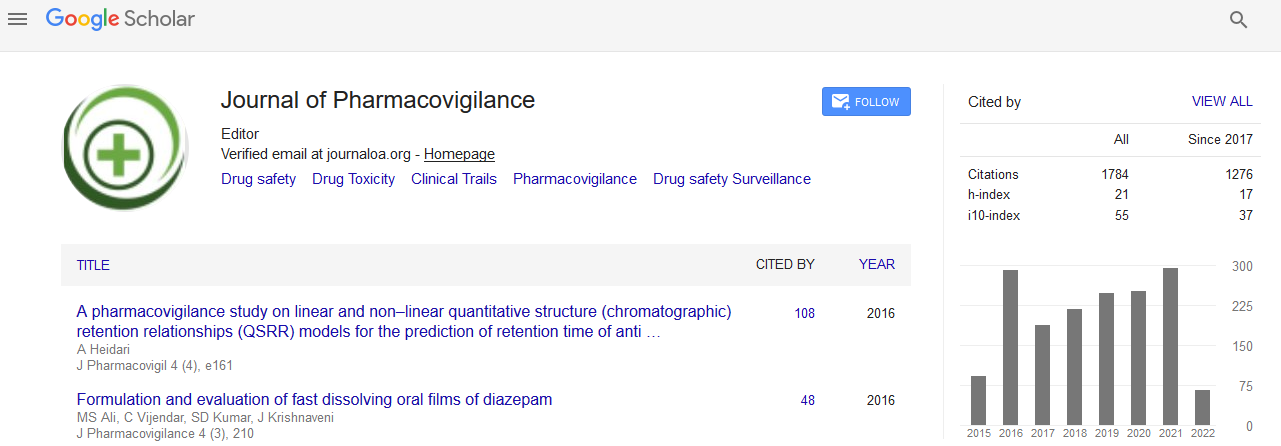Indexed In
- Open J Gate
- JournalTOCs
- The Global Impact Factor (GIF)
- RefSeek
- Hamdard University
- EBSCO A-Z
- OCLC- WorldCat
- Publons
- Euro Pub
- Google Scholar
Useful Links
Share This Page
Journal Flyer

Open Access Journals
- Agri and Aquaculture
- Biochemistry
- Bioinformatics & Systems Biology
- Business & Management
- Chemistry
- Clinical Sciences
- Engineering
- Food & Nutrition
- General Science
- Genetics & Molecular Biology
- Immunology & Microbiology
- Medical Sciences
- Neuroscience & Psychology
- Nursing & Health Care
- Pharmaceutical Sciences
Abstract
Roles of Pharmacist in Pharmacovigilance: A Need of the Hour
Rajanandh MG, Praveen Kumar V and Yuvasakthi S
World Health Organization (WHO) defines Pharmacovigilance as the science and activities relating to the detection, assessment, understanding and prevention of adverse effects or any other possible drug related problems. Pharmacovigilance plays an important role in ensuring patients drugs safety. Adverse Drug Reaction (ADR) is defined according to WHO as any response to a drug which is noxious and unintended and occurs at doses normally used in man for prophylaxis, diagnosis or therapy of disease or the modification of physiological function. Complete information of unintended and severe adverse events could be finding through the Pharmacovigilance. It could not be done through clinical trials which are conducted in in-vivo method. Pharmacists are not mere preparing or dispensing of drugs. The professional practice reaches far beyond serving community. Pharmacists have an important responsibility in monitoring the on-going safety of medicines as part of their professional practice. Pharmacist role in pharmacovigilance varies from country to country, but the professional responsibility is the same regardless of jurisdiction. Pharmacists can create a trusted environment by counselling patients to reduce medication errors, improve safety and quality of care.


